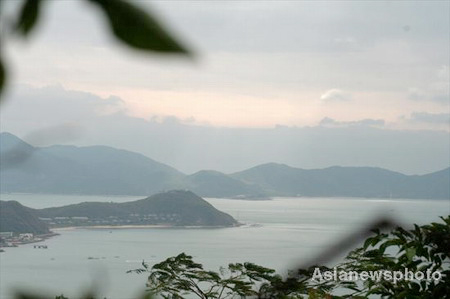Biz Unusual
Owning a private island is far from a dream
(Xinhua)
Updated: 2011-05-02 15:10
 |
Large Medium Small |
|
 |
|
Islands off Sanya, Hainan province. [Photo/Asianewsphoto] |
HANGZHOU - Owning one's own private island is a fantasy for many people, poor and wealthy alike. For some people, it's even a realistic possibility. Is it a risky investment or a lucrative strategy?
For many of China's wealthy, owning a private island has become a reality as a result of China's April listing of 176 uninhabited islands available for lease and development.
However, there are still many obstacles for prospective island-buyers, such as naming, supporting and managing their new property.
"I called some well-informed friends for more details as soon as I heard the news of the uninhabited island listing," says Qian Yunxiao, manager of a foreign trade company in the city of Wenzhou in east China's Zhejiang province.
"It may provide a profitable opportunity for me," Qian says.
China's State Oceanic Administration (SOA) released its first list of the country's uninhabited islands available for development by companies or individuals on April 12. A total of 176 islands in seven coastal provinces and one autonomous region are available for private development.
"Choosing the kind of business I want to run is what I am most concerned about now," Qian says. "A yacht club is my first choice, as it is exciting and attractive to a large number of potential consumers. There are plenty of businessmen in Wenzhou," he says.
Tourism, transportation, manufacturing, fishing, agriculture and forestry are some of the sectors that could be developed on these islands, according to the SOA.
"To spend tens of millions to rent an uninhabited island is no problem," Qian says. "The key is to find a proper business."
However, it might not be so easy to realize the dream of running one's own island. Zhu Renmin can attest to that - as the first owner of an uninhabited island in China, Zhu has experienced the hardship of being a developmental pioneer himself.
Zhu bought a small island near the city of Zhoushan in Zhejiang province in 1996. Inheriting artistic talents from his grandfather Pan Tianshou, a noted contemporary painter, Zhu was determined to build an art museum on the island.
"I named my island 'Lotus Island' and designed an art museum on it with some sculptures," Zhu says.
Although Zhu's island is now a well-known area in Zhoushan, he still can't forget the hardships he experienced over the past 15 years.
"There was no potable water, no electricity, and no route leading to the island," Zhu recalls. "I sacrificed a lot to explore the deserted island. I nearly lost my life when I was hit by a typhoon on my way to the island."
| 分享按钮 |



